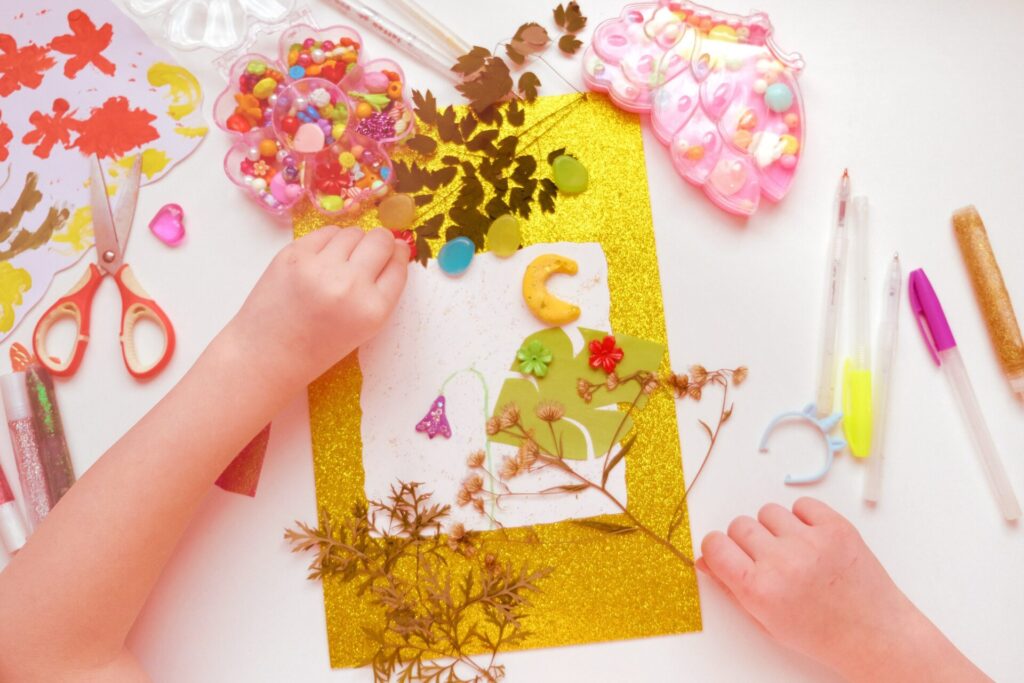Ever get the feeling your child is calling all the shots? Here’s how to stop the over-indulgence train, before it’s too late.

Any parent who has cringed with embarrassment at their child’s feet stomping, arm crossing and crocodile tears after telling their child they can’t have that new toy, shirt or chocolate bar has asked themselves: am I raising a spoiled child? And what do I have to do to get a simple thank you around here?
Luckily, a little conscientious parenting can help. “When that sense of joy and excitement that they used to have for something, (whether a toy or an experience) is no longer there, that’s a sign you need to rein it in and make some changes,” says psychologist Jeffrey Froh, co-author of Making Kids Grateful: The Science of Building Character.
The gimmes may seem like a childhood rite of passage – after all, this is how infants make their needs known – but they can turn into an issue when we confuse basic needs like feeding and clean diapers with wanting to stay up late or wanting a certain toy. You can hardly blame the kids. When babies cry for their basic needs to be met, parents attend to them. Usually pretty quickly, so why not cry when they “need” something else?
The danger is that some children, past the age of two, become unable to balance their own needs and wishes with those of others. They want parents to cater to their wishes at the expense of siblings’ needs, they refuse to take no for an answer, they are clearly unappreciative of what they have (tossing toys into a heap on the bedroom floor, for example), they neglect to say thank you. These behaviours, the experts warn, are telltale signs that a child has been overindulged.
Unfortunately, overindulgence has become the new normal. According to parent educator Jean Illsley Clark, co-author of How Much is Too Much? Raising Likeable, Responsible, Respectful Children, this is because “parents want their children to have all the wonderful experiences they can, and at the same time the whole culture is engaging in overindulgence.”
Living with a spoiled child can not only create a tense household, but research shows there are many social and developmental risks to this pattern of behaviour also. Teenagers who were overindulged as children, often have trouble delaying gratification, poor self-control, difficulty taking personal responsibility, are ungrateful and can fall behind in learning key life skills.
Overindulgence doesn’t apply strictly to excessive purchases. “We think of being spoiled as a result of over-indulgence; such as parents who buy their kids designer jeans,” says Peggy Harper Lee, author of Spoiled: Fresh Ideas for Parenting Your Entitled Child at Any Age. “But when we get down to the root of the issue it’s really about a transfer of power. And that happens with indulgence but it also happens with overprotection,” she says, adding that so-called helicopter parents may also be putting their children at risk of this behaviour.
Entitlement is a result of a shift in the balance of power from the parent to the child. “It’s where the parent has less confidence and the child perceives that they have much more leadership and decision-making authority than they should have,” says Peggy.
Curbing entitled behaviour isn’t only about reducing kids’ access to material goods; it’s about creating an attitude of gratitude and appreciation.
Here’s five ways to replace the Gimmes with Thank Yous:
- Adopt a grateful vocabulary. “Grateful people tend to speak differently than less grateful people,” says Jeffrey. Incorporating words such as “blessings”, “fortunate” and “lucky” into your everyday language will influence how you, and therefore, your children, will think and act.
-
Feed children’s emotional hunger with love rather than possessions. “One of the greatest gifts we can give our children is our time,” says Jeffrey. A 1998 study by Concordia University showed only 23 percent of kids who admitted to being spoiled as children felt loved. Too often, Peggy says, “parents who feel guilty about not spending enough time with their children buy them things to show their love.” But showering children in material possessions can quickly lead to entitled behaviour. Over-scheduling activities can be equally damaging. “In some families, that’s the number one overindulgence,” says Jean. Rather than filling weekly calendars with piano lessons, swim classes and hockey games, consider how you can alter your weekly plans to spend more time connecting.
-
Express appreciation to children as well. While you may not think it’s necessary to say “thank you” to children for cleaning their dishes off the table – a task that many parents consider simply normal behaviour – showing kids you appreciate them goes a long way to solidifying the parent-child relationship. Jeffrey says a respectful relationship at home is one of the most important building blocks of helping kids foster an attitude of gratitude later on in life.
-
Find alternatives to the word ‘no’. Giving in to kids’ every demand is a bad idea, but putting the word “no” on auto-loop may not be the right approach either. Saying “don’t even think about asking me for that” when you catch your five-year-old’s eyes light up at the sight of a candy bar can give kids the impression that they’re powerless to get the things they want. Helping kids feel empowered, not entitled, is the key to avoiding the gimmes.
When Peggy’s 14-year-old son saw a cool hat in the mall, Peggy knew she wasn’t going to buy it for him, but rather than say “no”, she gave him the option of putting it on his birthday list or purchasing it himself. Even though his birthday was two months away, her son chose to put the hat on his birthday list. “That hat was a prized possession for three years for him,” says Peggy. The concept of delayed gratification is one of the most important ways to curb the gimmes, she adds.
-
Provide opportunities to express gratitude. No time of year is better suited than the holidays.
• Encourage kids to give back to those less fortunate by donating some of their toys to charity. Decide upon a number of gifts kids will keep for themselves and ask them to donate the rest.
• Websites such as ECHOage.com allow kids to invite gift givers to contribute to a gift of the child’s choice with the funds split in two – half goes towards the gift while the other half goes to a charity of the child’s choosing. • Volunteering at toy drives, food banks or local soup kitchens are also great opportunities for kids to see first-hand what others don’t have. Although the holidays are chock full of chances to express gratitude, ensuring children adopt an attitude of appreciation year round means extending past the holiday season.
How one mom's idea of generosity grew
When Kelowna, B.C. mom Chantelle Adams wanted to teach her four children (then ages 9, 8 and 4-year-old twins) the value of generosity, she gave each child a toonie and asked them to think of how they could use their talents to turn that toonie into something bigger.
“I wanted them to see the power their actions could have to make a difference in the world,” she says. Each child came up with a different idea. One put together a lemonade stand, another did a magic show and the twins did a bottle drive. By the end of the summer, they had raised $1,800.
The following Christmas, Chantelle’s oldest son Teagan, now 12, decided he wanted to use his talents to do more than just a lemonade stand. He wanted to start a social enterprise. Seeing the popularity of Pokemon Cards, he came up with a unique trading card game that would inspire kids to do good deeds for others in their homes, schools and communities. He named the cards Doogoods. Thirty characters each represented a good deed such as teaching someone something you’re good at, giving someone a compliment, and making a list of things you’re grateful for.
Teagan was selected to present his social enterprise on a special student episode of CBC’s Dragon’s Den. The exposure helped him sell more than 450 packs of Doogoods. Added to his siblings’ efforts, the Adams’ children raised $11,000 in one year to build a school in Kenya. “Pretty amazing to think that it all started with just $2 and a challenge to use their talents to make the world a better place,” says a justifiably proud Chantelle.
While not every child is going to demonstrate such entrepreneurial spirit, all children can tap into their empathy when given the chance and learn to be more appreciative of the things they have.
Lisa Evans is a Mississauga-based writer who purchased all of her son’s nursery furniture second hand and hopes to foster a sense of appreciation for things he has rather than always wanting more.
Originally published in ParentsCanada magazine, December 2014.








